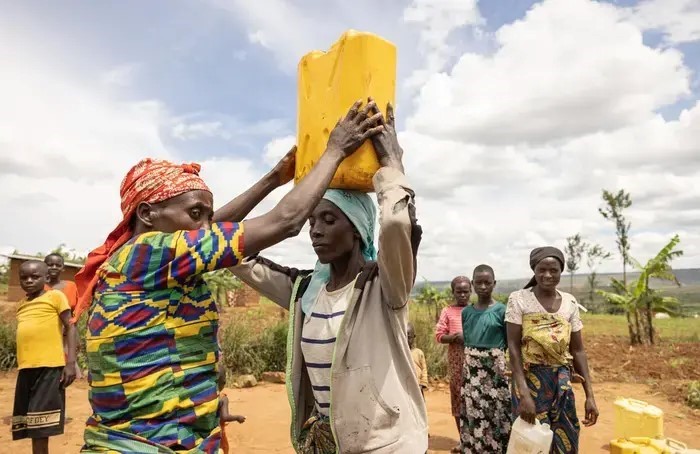By ’Dogga Luwo
Uganda is facing an influx of refugees, primarily from Sudan, the Democratic Republic of the Congo (DRC), and South Sudan, straining the country’s open-door policy and protection services.
According to UNHCR Representative in Uganda, Matthew Crentsil, Uganda is welcoming over 33,000 Sudanese arrivals, with 19,000 arriving in Kampala since the start of 2024, fleeing the ongoing conflict in their home country. Most of these Sudanese refugees have a university-level education.
In addition to the Sudanese arrivals, Uganda is receiving an average of 2,500 new refugees per week, mainly from the DRC and South Sudan, driven by ongoing conflicts and climate-related challenges in the region.
The continuous influx of refugees, combined with funding shortfalls, is putting significant pressure on the protection and assistance services provided to refugees and their host communities, Matthew said in a statement.
He said this is risking Uganda’s solid protection regime and refugee response model, which has long been an ideal of stability in the region.
He said the health sector, which serves both refugees and host communities, has been hit hard by the funding gaps, leading to a reduction in health centre staff and insufficient supplies to meet critical health needs.
An outbreak of conjunctivitis (red eye disease) in several refugee settlements, such as Nakivale, is exacerbated by a shortage of water and soap, impacting hygiene.
Mr. Mathew stated that mental health concerns are also persisting, with four attempted suicides among refugees in Adjumani reported in the past two weeks, highlighting the vulnerability of the refugee youth and the need for increased targeted interventions.
Education is also a concern, as schools are overcrowded, and there are not enough teachers or educational materials, making it difficult for children, who represent more than half of the total refugee population, to access quality education.
Critical protection services, such as refugee registration, are also facing delays due to a lack of necessary materials and equipment.
Investments in supporting refugees with income-generating activities have had to be curtailed, with a ripple effect on efforts to make refugees less dependent on aid.
UNHCR and senior Ugandan officials have been advocating for additional resources from donors, including the Governments of Denmark, the Netherlands, and Belgium, as well as EU institutions, to address the profound impact of reduced funding and support Uganda’s commitment to fulfilling pledges made at the 2023 Global Refugee Forum.
Uganda hosts the highest number of refugees and asylum-seekers in Africa, with almost 1.7 million people, mainly from South Sudan and the DRC. Yet, the country was among UNHCR’s 13 top underfunded operations globally in 2023. In 2024, the Uganda Country Refugee Response Plan (UCRRP) has received just 13 per cent of the required $858 million.
If the funding gaps are not addressed, and Uganda’s progressive refugee policies lose ground, there are concerns that refugees may start moving out of the country in search of a way to survive.
This could weaken development gains, institutional capacity, and peaceful coexistence with host communities. More international support is needed to help support Uganda’s commitment to refugee protection.




